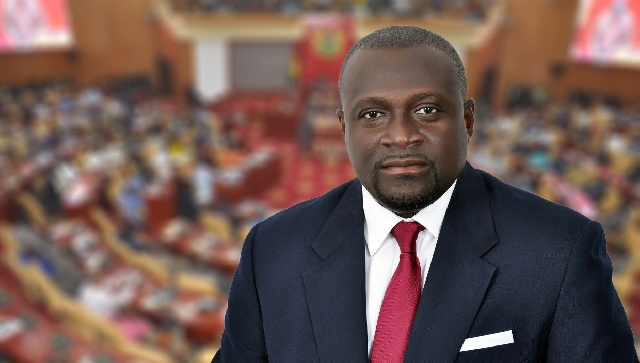Member of Parliament for New Juaben South and Chairman of the Finance Committee in Parliament, Mark Assibey-Yeboah, has defended government’s decision to suspend the Fiscal Responsibility Act which requires the deficit to be kept at a maximum of 5 percent of GDP – citing the pandemic as a reason to do so.
In his submission during the debate on the mid-year budget that was presented to Parliament last week, the Member of Parliament reiterated the dire effects of COVID-19 on the economy, noting that but for the pandemic which hit global economies including Ghana’s, the government was on course to achieve its fiscal target of 4.7 percent.
“To ensure that there isn’t irreversibility and to avoid election-year slippages that we have come to know, the Finance Minister himself sponsored the Fiscal Responsibility Law, and we passed the law in this house in 2018. In Act 982 Section (2), there is a rule which says the overall fiscal balance on cash bases to a particular year cannot exceed a deficit of 5 percent of the gross domestic product for that year, and we projected to do 4.7 percent in 2020. Suddenly, the COVID-19 pandemic struck.
“The pandemic has shaken the whole world. It has fundamentally damaged the world’s economy, and so forecasts have been lowered everywhere. That is why the Finance Minister indicated he is going to suspend the Fiscal Responsibility rules, and it is within the minister’s power to come to the House to ask for suspension of the fiscal law,” Dr. Assibey-Yeboah said, referring to Act 982 Section (3) which allows suspension of the law due to certain circumstances, including a public health pandemic.
Finance Minister Ken Ofori-Atta in his mid-year budget presentation last Thursday stated: “From developments thus far, it is clear that the fiscal rules of a deficit not exceeding 5 percent of GDP and a positive primary balance enshrined in the Fiscal Responsibility Act, 2018 (Act 982) are neither feasible nor attainable targets in this emergency period of the COVID-19 Pandemic.
“The scale of damage and macroeconomic distortions caused by the pandemic is unprecedented in our country’s history. It may take a while to return to the pre- COVID-19 fiscal path. According to our revised fiscal framework, the economy is not likely to return to the 5 percent fiscal deficit threshold set in the Fiscal Responsibility Law sooner than 2024.
“Consequently, as required by section 3(3) of the Fiscal Responsibility Law, the government will within 30 days present before this august House the necessary documentation that supports the suspension of the fiscal rules and targets for this year 2020,” the minister added.
According to him, provisional fiscal data for the first half of the year show that revenue mobilisation fell short of the target by 26 percent, resulting mainly from shortfalls in oil revenue, Customs receipts and non-oil tax revenues. Total revenue and grants for January to June 2020 amounted to GH¢22billion compared with a programmed target of GH¢29.7billion.
Non-oil tax revenue, comprising taxes on income and property, goods and services and international trade, amounted to GH¢16.7billion or 4.3 percent of GDP – 16.2 percent below the programmed target of GH¢19.9billion or 5.2 percent of GDP. Revenue from upstream oil and gas amounted to GH¢1.9billion (0.5% of GDP), 55.4 percent lower than the programmed target of GH¢4.4billion; mainly on account of lower volumes and a significant drop in crude oil prices on the international market.










